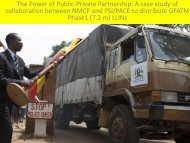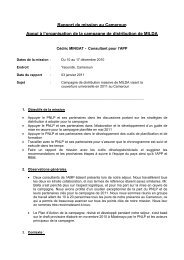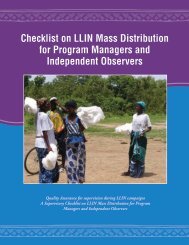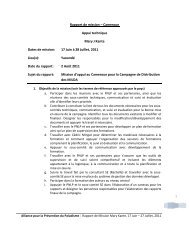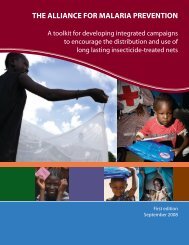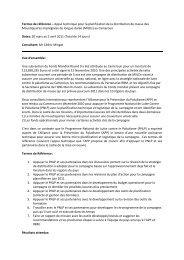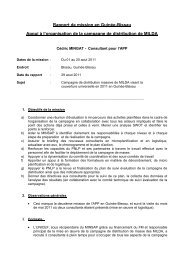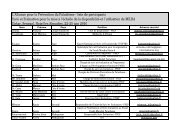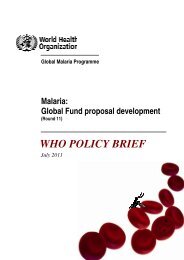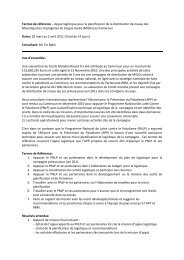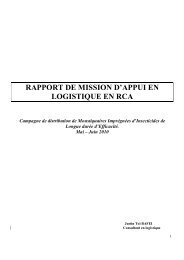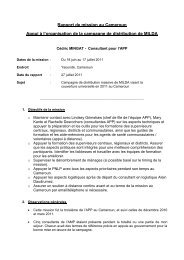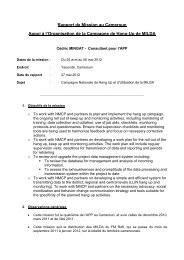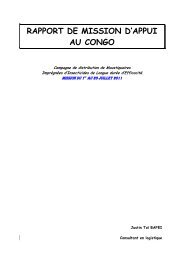Spots - Roll Back Malaria
Spots - Roll Back Malaria
Spots - Roll Back Malaria
- No tags were found...
You also want an ePaper? Increase the reach of your titles
YUMPU automatically turns print PDFs into web optimized ePapers that Google loves.
STEP 4: PRETESTWho should conduct the pretestYour interviewers/moderators must be able to read and write in the local language. Itis helpful if they also have some qualitative research experience because manyquestions are open-ended and require good probing and group facilitation skills.Teachers, university students (especially anthropology students) and writers have skillsto carry out the research. It is best not to use people who normally give advice (suchas health workers) because the objective is to solicit the opinions of the interviewees.Also, do not use staff that developed the spot to conduct the interviews or groups.The pretesting should be conducted by unbiased interviewers/moderators.The number of interviewers you will need depends on the number of interviews orgroups per location and number of sites. It is recommended that you conductmultiple groups with similar types of participants so that you can detect patters andtrends across groups.For example, if there are four sites with 10 people to interview in each site, youwill need two teams of two interviewers. This way each team could finish one siteper day, so the fieldwork would take two days and require two vehicles. Or, youcould use one team of two interviewers who, doing one site per day, wouldcomplete the fieldwork in four days, using just one vehicle.Spend a day or so training the interviewers on how to use the facilitation guides.(Refer to Annex 2 for helpful tips for facilitating group discussion, probing, andrecording.) Practice with real respondents should be part of the training to provideinterviewers a real experience and give the lead researcher an opportunity toprovide feedback to the interviewers and revise the questionnaire asnecessary.Tips for the interviewer Ask participants to specify what they think should be used instead when they findanything—words, phrases, names, voices, music, sound effects—inappropriate,offensive, or not relevant. Avoid giving them ideas or stating your own conclusions, if possible, get actualsuggestions. This requires good probing skills. In a group discussion, be sure to summarize verbally a specific response/theme byasking “Who agrees?” with a given comment. Count the number out loud, so thenotetakers can record it. This is especially important for negative comments andsuggestions for changes, since this will help in making decisions about howimportant it is to make particular change(s).Spot On <strong>Malaria</strong>: Guide63



